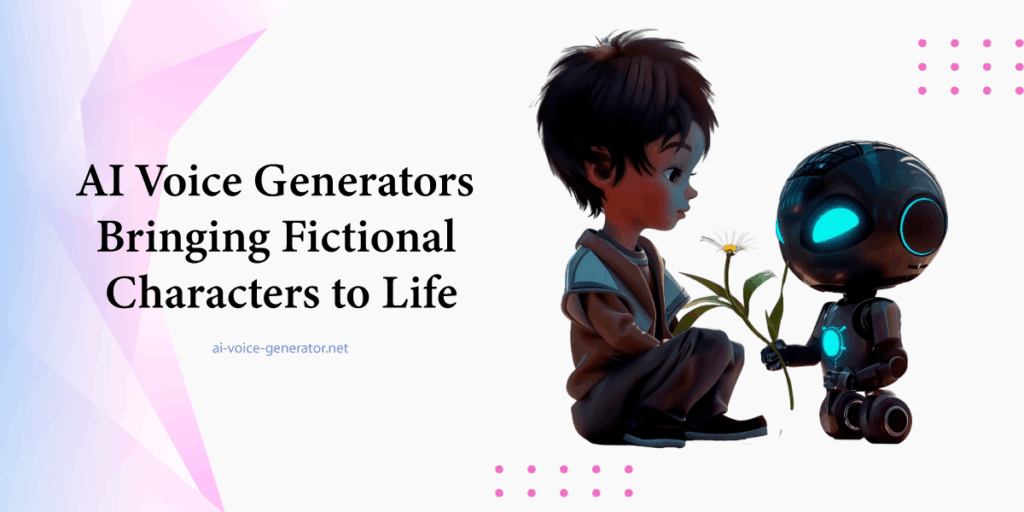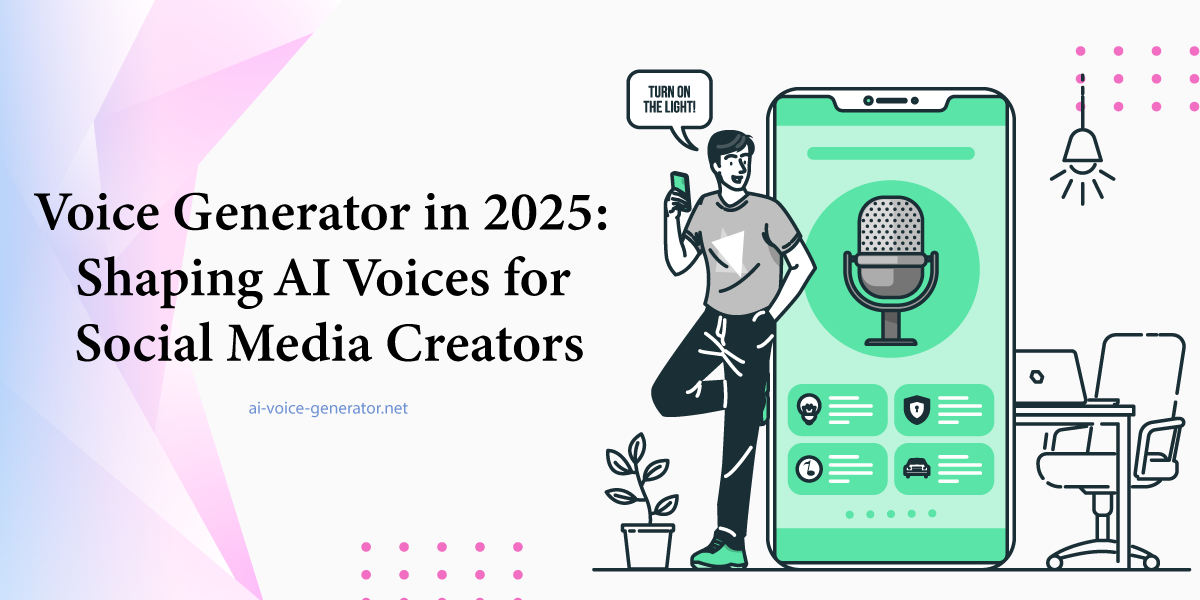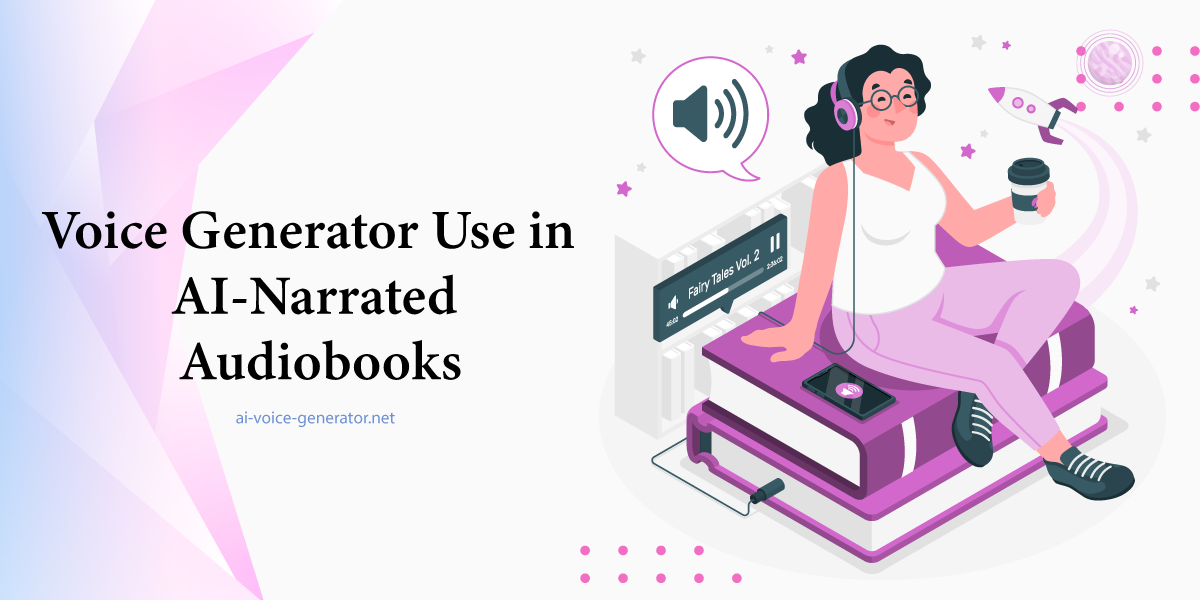
AI Voice Generators Bringing Fictional Characters to Life
In the evolving landscape of digital creativity, AI voice generator technology is opening doors once thought impossible. The ability to create lifelike, expressive voices without human input is not just a technical marvel; it is reshaping how fictional characters come alive in media. From books and animations to games and fan projects, these synthetic voices are enhancing storytelling and character development in deeply immersive ways.
Behind this innovation lies the sophisticated use of text to speech technology, which has advanced far beyond robotic monotones to produce nuanced speech with varying tone, pitch, and emotion. This progress means fictional characters can now have voices that sound as authentic and engaging as those of human actors, without the need for costly recording sessions or voice actor availability.
The Art and Science of AI Voices for Characters
Creating believable voices for fictional personas requires a delicate balance of technology and artistry. AI voices for characters combine vast datasets of human speech with machine learning models designed to mimic the subtleties of human vocal expression. This technology has enabled creators to experiment with an almost unlimited range of voices, accents, and speech styles that match their characters’ personalities and backgrounds perfectly.
What sets these AI voices apart is their adaptability. Unlike traditional voice actors, AI can generate multiple variations of a character’s voice, allowing for nuanced emotional expression and consistent delivery across different scenes and media formats. This flexibility is invaluable for writers and producers who want to maintain continuity in their projects without logistical constraints.
Fictional Character Voice Creation: A New Frontier in Storytelling
When it comes to fictional character voice creation, the possibilities are vast. Authors and developers can now give a distinct voice to every character, regardless of budget or access to professional actors. This opens up creative avenues for indie developers, small studios, and self-publishing authors who previously faced barriers to entry due to voiceover costs.
AI voice creation also allows for dynamic storytelling where characters can evolve their speech patterns or emotional tone based on story progression. This means the voice of a character can reflect their journey, deepening the audience’s connection to the narrative. The technology encourages richer character development, making stories feel more alive and engaging.
Voice Cloning for Animation: Perfecting the Character’s Sound
In animation, voice plays a crucial role in conveying personality, mood, and intention. Voice cloning for animation takes this a step further by enabling animators to reproduce voices with remarkable precision. If a particular voice actor is unavailable, or if a series requires maintaining voice consistency over years, AI voice cloning can fill the gap seamlessly.
Voice cloning involves training AI models on samples of a specific voice to create synthetic versions that sound nearly indistinguishable from the original. This technique allows animated characters to retain their unique vocal identity while benefiting from the flexibility and efficiency of AI-driven generation.
AI Voiceover for Storytelling: Enhancing Narrative Engagement
Storytelling benefits immensely from well-crafted audio narration, and AI voiceover for storytelling is becoming a powerful tool in this regard. Whether it’s an audiobook, podcast, or interactive narrative, AI voiceover can deliver clear, expressive, and customizable narration that suits the tone and style of the story.
Using AI eliminates many logistical challenges associated with human narration, such as scheduling, cost, and time constraints. Moreover, AI voices can be tweaked to match different genres, moods, or target audiences, making them an ideal choice for diverse storytelling needs.
Custom AI Character Voices: Tailoring Voices to Unique Personalities
One of the standout advantages of AI voice technology is the ability to design custom AI character voices that perfectly fit a character’s identity. This customization can extend from the pitch and speed of speech to emotional tone and accent, resulting in truly unique voice profiles.
Creators can experiment with voice traits until they find the exact match, something that is often difficult with human voice actors due to natural limitations. These personalized voices can help distinguish characters in crowded narratives and make fictional worlds more immersive.
Synthetic Voices for Games: Creating Immersive Player Experiences
The gaming industry has embraced AI voice technology as a means to deliver richer, more immersive experiences. Synthetic voices for games enable developers to provide a wide array of voiced characters without the budget or time commitment traditional voice acting demands.
From non-player characters (NPCs) to dynamic in-game narrators, synthetic voices allow for real-time dialogue generation that can adapt to player choices and actions. This not only enhances interactivity but also deepens the emotional impact of gaming stories.
Voice Synthesis for Fiction: Bridging the Gap Between Imagination and Audio
The intersection of voice synthesis for fiction represents a fascinating blend of creativity and technology. Writers who once relied solely on text to convey their stories now have access to tools that give their words a vocal dimension. This brings fictional worlds to life in ways readers can hear and feel, expanding the narrative’s reach.
With voice synthesis, it’s possible to produce entire audiobooks or dramatized readings without traditional recording studios, enabling more authors to bring their work to audio formats and reach new audiences.
Character Voice AI Tools: The New Standard for Digital Creativity
The emergence of character voice AI tools marks a shift in how digital content is produced. These tools provide creators with intuitive platforms to generate, modify, and implement voices tailored for their unique projects. They make voice design accessible to non-experts and empower professionals to enhance quality and efficiency.
The variety of character voice AI tools available today supports a spectrum of creative needs—from simple voice generation to complex voice cloning and emotional modulation—making them indispensable for modern content creation.
At the heart of this innovation lies AI Voice Generator, a platform that exemplifies how accessible and powerful these technologies have become. Offering users the ability to craft custom voices for any project, it stands as a valuable resource for storytellers, game developers, and animators looking to elevate their characters through sound.
Challenges and Ethical Considerations in Fictional Voice Generation
While the technology brings exciting opportunities, it also presents challenges. Ensuring synthetic voices sound natural without slipping into uncanny valley territory is an ongoing technical hurdle. Moreover, ethical questions arise around consent, especially when cloning real voices or replicating voices of deceased actors for fictional roles.
Creators must navigate these issues thoughtfully, balancing innovation with responsibility. Transparent use policies and respect for intellectual property help maintain trust and integrity in AI voice applications.
Future Possibilities: What Lies Ahead for AI Character Voices?
Looking ahead, AI voice technology is poised to become even more sophisticated. Advances in emotional recognition and real-time voice adaptation could lead to characters that respond vocally to user interactions in deeply personalized ways. Imagine fictional characters that not only speak but react with appropriate tone and sentiment as conversations unfold.
Such developments promise to blur the lines between creator and audience, transforming storytelling into a dynamic, participatory experience.
The Impact of AI Voices on Accessibility in Fictional Media
Beyond entertainment, AI voice generators are enhancing accessibility for diverse audiences. Characters voiced through AI can be fine-tuned for clarity and comprehension, making stories more inclusive for those with hearing impairments or learning disabilities.
This democratization of voice technology means fictional worlds become accessible to a broader spectrum of listeners, enriching the cultural reach of creative works.
How Creators Can Maximize the Potential of Voice Cloning for Animation
To fully benefit from voice cloning for animation, creators should focus on collecting high-quality voice samples and understanding the character’s vocal nuances. Combining AI capabilities with human oversight ensures voices retain emotional depth while achieving technical precision.
Strategic use of AI-generated voices can reduce production time and costs, freeing resources for other creative elements such as visual design and narrative refinement.
Tips for Integrating AI Voiceover for Storytelling in Various Media
When using AI voiceover for storytelling, it’s important to consider the medium and audience expectations. Audiobooks may require a more consistent and soothing tone, while game narration benefits from dynamic expression and adaptability.
Fine-tuning the AI voice parameters to match the story’s mood enhances listener engagement and preserves immersion, ensuring the voice adds value rather than distraction.
Creating Distinctive Custom AI Character Voices: A Step-by-Step Approach
Developing custom AI character voices starts with a clear concept of the character’s identity. Consider factors such as age, personality, background, and emotional range. Use AI tools to experiment with voice qualities until the voice feels authentic.
Involving test audiences early can provide feedback that guides refinements, helping ensure the final voice resonates with listeners as intended.
The Role of Synthetic Voices for Games in Shaping Player Narratives
Games thrive on storytelling, and synthetic voices for games offer unprecedented versatility in character portrayal. They enable rapid iteration of dialogue and support branching narratives where voice lines adapt to player choices.
This flexibility enriches player agency and creates personalized storytelling experiences that were previously difficult to achieve at scale.
Understanding Voice Synthesis for Fiction: Techniques and Tools
Voice synthesis involves complex algorithms that analyze text and convert it into speech. Innovations in neural networks and deep learning have improved naturalness and expressiveness, making synthetic voices viable for professional fiction projects.
Creators should familiarize themselves with different synthesis techniques to choose the best fit for their project’s tone and technical requirements.
Selecting the Best Character Voice AI Tools for Your Project
Choosing among character voice AI tools depends on project scope, desired voice quality, and customization needs. Some tools excel at emotion modulation, while others offer extensive voice cloning capabilities.
Evaluating options based on user-friendliness, integration options, and cost helps creators find tools that align with their creative vision and workflow.
Conclusion
The intersection of AI voice generators and fictional characters represents an exciting new chapter in storytelling. By harnessing AI voices for characters, creators can breathe life into their imaginary worlds with unprecedented authenticity and flexibility. From voice cloning for animation to custom AI character voices and synthetic voices for games, the possibilities continue to expand, offering storytellers innovative ways to engage audiences.
FAQs
An AI voice generator uses artificial intelligence to produce human-like speech from text, enabling natural and expressive voice outputs.
Voice cloning trains AI on a specific voice sample to replicate that voice’s unique qualities, allowing consistent character voices in animation.
Yes, AI technology allows the creation of custom AI character voices tailored by pitch, tone, accent, and emotional expression.

